Making It Big
The Highs and Hopes of Jeneez
★ ★ ★ ★
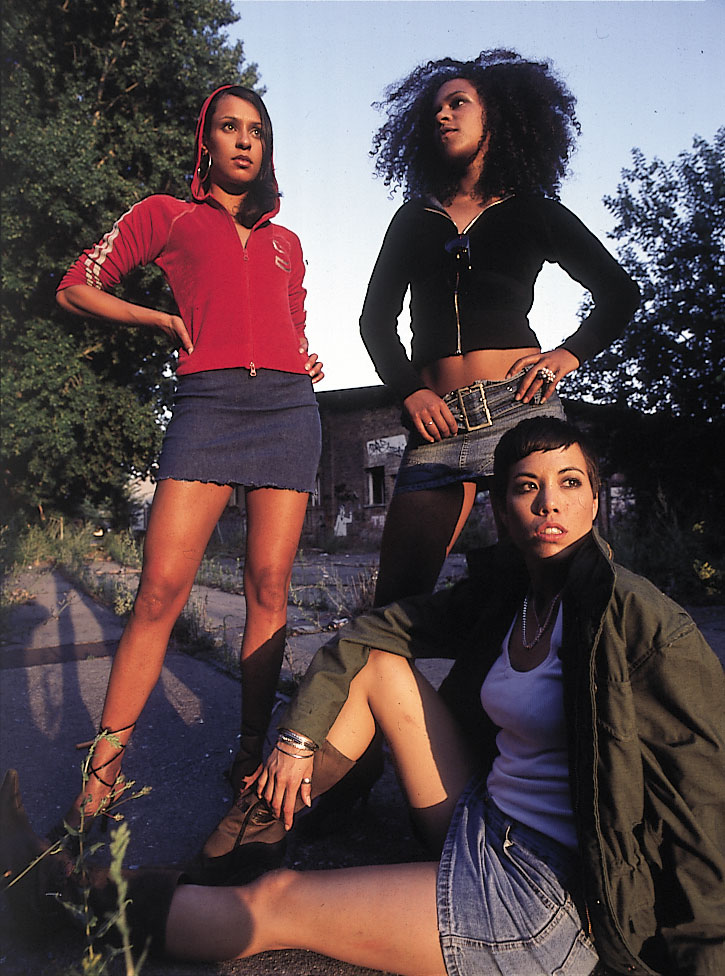
By AnaRey Helmy
If you never try you will never know.
I have lived my dream. I was a rapper. Part of a crew. Three women, three mics—Jeneez.
I had just come back to Berlin after five years away at college in the U.S. on a sports scholarship. Coming back from the States, I had expected a cultural shock of some sort. After all, I had left Germany when I had just turned seventeen. I was still figuring out who I really was when hip-hop happened to me. 1993 to 1998, those were my years in the US. First in Virginia, then onto Pittsburgh, PA. University life, track life.
I didn’t rap in America. I couldn’t have even imagined it. Rap was for stars. The Notorious BIG, Jay-Z, Tupac—multi-platinum megastars, major talents, idols. I didn’t know any rappers, none of my friends rapped.
But I was a fan. I DJed at WPTS—my university’s radio station, once a week for a couple of hours. I played hip-hop—my favorite records, no scratching skills but at least smooth transitions. I loved it, although I was super shy.
But me, a rapper? That thought never crossed my mind.
And then Berlin happened. No culture shock, no rough transition. Being back home felt right. And it was all thanks to hip-hop. I was twenty-one, with not a care in the world. I went clubbing. Three, four times a week. And anywhere I would go there was an open mic, spontaneous freestyle battles, a sort of acapella cypher. It was everywhere. The whole city felt on fire. Everybody seemed to be rapping, young people, a diverse urban crowd. (In Germany, hip-hop fans come from all backgrounds, incomes and ethnicities). Here, I knew rappers. No stars (at least not any Jay Z types), just star dreams.
There was this vibe, this ground movement. Growing from the roots up, still young, still hungry. Anything felt possible.
I felt it and I wanted to be part of it. I wanted to rap, I wanted to be a rap artist. And so I entered the cyphers. I took up the mic, recorded my first tape full of baby-rhymes, with a cheap mic hooked to my boom box at home. I met some people, and eventually a couple of years into being back home, I went on tour. As a featured artist, for a couple of songs a night with a group of guys called Die Analphabeten, The Illiterates. Nine or ten bands joined that tour. One whole month. I didn’t do it for money, there was no money. But I was working at a TV Station at that time, and I took that month off.
Then I got married, gave birth to my eldest daughter, and enrolled at a German University for my masters program. A life full of events. I kept pushing at that rap thing. But I had no plan. All I knew is that I wanted to be a rapper. Fully-fledged. But how to go about it? And that was when Jeneez came to be. And with that, I realised—I had been waiting for a crew all along, all along. This felt right. And it felt like my dream.
This is how it happened. I was recording with a bunch of girls at a studio one day. About nine female rappers working together on a hymn about our hometown Berlin. Great feeling. The vibe, the girls. This is where I met Ninjah. Half Japanese, half German and the baddest rap talent to my ears. She was all into this crew thing. ‘Let’s connect, let’s build something, let’s do this—together!’ She was full of ideas and energy and I was sold. I had known Roxy from a studio session way back when. I called her up, the three of us met in my living room and it just clicked. Not a girl group, that’s pop. We were hip hop. Three women, three female MCs. Roxy, Ninjah, AnaRey—Jeneez.
Jeneez. A German wordplay. Roxy’s idea. Sounded out, it sounds like genius, in its plural version. Three geniuses. Perfect. And, written down it looked edgy, at least that’s how we felt. Back in 2004 we used to play around and repeat the first sound: J-J-J…in German it sounds just like the G-G-G in G-Unit. Yup, until we heard them do it in their songs. That put an end to that. Although we sometimes still used it for live gigs. It worked great with a crowd.
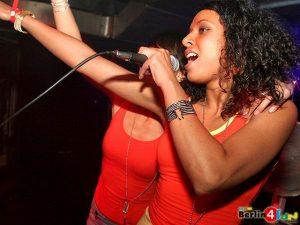
Jeneez started out at a time when German rap was already established and already on it’s second or third generation. Groups like Die Fantastischen Vier—The Fantastic Four—go back to the mid 80s. Throughout the 90’s German hip-hop was diverse. Artists from all over the country made it big with quite individual appeal. It was that rainbow thing, the good old 90’s. MTV played the videos, some radio stations played strictly urban/hip-hop. Although, unlike France, there is no quota for German music that has to be met on German radio. So hip-hop from the States was always strong here. But with the new millennium, German rap music turned gangster. And, rap music based in Berlin—the German capital, clearly dominated.
Hip-hop is certainly one of the most testosterone-driven music genres you can imagine. Knowing that, it becomes quite clear that a female MC is not comparable to an average pop singer. A female MC is in a most challenged position. To us, to Roxy, Ninjah and me, a female MC could only be one way: strong. A Lauryn Hill-type woman. Outspoken, talented, smart and, yes: fierce on stage. An MC is a Master of Ceremonies. Or Mistress. Meaning, you have to rule the stage. And we wanted nothing less.
In my life, like many women I know, I am not half as confident, as I would like to be. I would love to be strong, always. But I’m not. That’s alright, it’s fine. But somehow, as an artist I was strong, very. And confident, always. Our team, our crew made this possible. Those two wonderfully charismatic, loud, outspoken and talented women at my side that gave me support through it all. We could not fall. We were each other’s crutches. Holding each other up. At all times. Support, friendship, love—simple as that. It was magic.
Sisterhood. Growing up. Life. Struggle. And remaining strong through it all. That’s what we wrote about. Our dreams were big. We wanted a deal. Wanted to sign with a major label. And we wanted to stay in charge. The beats, our pick. The lyrics, our own. We decided on basically everything. We even glued up our own booklet to send it out for applications. Independent stuff. Not realising at the time, that this is not the way a major record label wants their artists to work. We didn’t know. We didn’t care. There we were: broke but independent. And bursting with creative energy. From meetings in a living room, we went to meetings in our DJ’s living room. Practising, a lot. Striving for perfection. Musically, lyrically, performance-wise. Hooking up with studios, first recording sessions. Three women, two of them mothers.
Yes, at that time I was a mother, a musician, a student at university and a journalist working night-shifts at a TV station. But all along dreaming only of making it big with Jeneez. Roxy had two kids, a little older than mine. They came to our gigs. It always felt great, it always felt right. Our attitude was this: We were strong, tough ladies and super-duper role models, especially for girls. Never mind the parental advisory explicit lyrics—we rocked the stage. We were loud. We were proud. We were all I ever wanted to be. “You see us live on stages, you hear us in the clubs/We’re on the title pages, the radio’s pumping our stuff/We are the reason all your children claim us idols now/Cause we’re proud and independent ladies from the mothertown.” And, we were our own biggest fans. I love our stuff, still do.
Luckily we had real fans too. At that time we kind of hit home with all types of people. Men, women, college students, little street gangsters, other musicians, feminists. The feminists especially loved the bad language along with our attitude. I felt like I really owned the title of ‘feminist’ when I was on stage and spitting my thoughts. What a range, though. It felt right.
The very first concert we ever did was in Dresden, Germany. Roxy was living there at the time. She had organised this gig in an Antifa-House. Anti-fascist. Left-wing political activists. This is not your typical hip-hop crowd, not at all. We loved being there, for political reasons. It was a weekend where neo-Nazis had an official demonstration in town, hundreds of them. The Antifa-House had been a meeting spot for the counter demonstration. Afterwards they partied. Punk. Beer. And nobody cared. We were supposed to do about 20 minutes. Upon arriving we asked for the stage and were led to the basement. In a room about the size of an average living room we found a tiny bar (just a stretch table, no bottle display), two sofas and people hanging out, chilling. But no stage.
This was no option, our first gig, tiny or not. We wanted a stage. So we got some people to help us. We found an old door, out of the frame—leaning on a wall in another room of the basement, we found an old carpet, put the door on some beer crates and there we had it: our first stage. Our DJ, Danetic, the best—who is still in the business (you can book him if you ever come to Germany!)—he put the turntables on an old rickety camping table and we rocked our first show. People actually did get up from their sofas. Unthinkable. Because again, they were Punks. It felt great. From that start then to being part of the line up in the 2008 hip-hop Kemp Festival in Prague—live performance remained our thing.
We aimed for perfection. Lyrical skills, of course. But with that strong focus on a good live show. Somewhat unusual for German rap at that time. Live gigs in hip-hop can be rather uninspired performances. It’s usually just a rapper, walking left, then right, then left again on stage. Shouting: “now scream!” or “hands up!”. It was energy brought to you by yelling, basically. I always adored the energetic part. But we wanted more. And yes, that meant dance routines. No corny, cheesy steps. Nothing slutty or crude. Just cool, slick moves. And choreographed. We put on a great show. We had fun and so did our crowd.
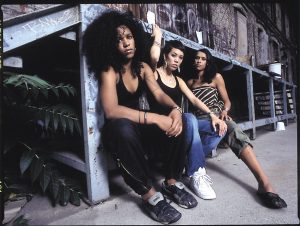
We soon made a small name for ourselves. Nothing big, but it was a start. We came in second in a Berlin band contest. Had gigs in and around the Berlin area, in Schwerin, Munich, later Prague. We were featured on the legendary dvd Rap City Berlin and in the Juice magazine. Two years into Jeneez, we even had a manager and we were finally talking to major record labels.
Record companies promise the world. We had recorded more then forty songs by the time we first met some of their representatives. We had enough for our first album. We loved our stuff and were more then ready to release it. But reading their contracts, we realised that the record companies wanted most of the money. It was crazy. We had a very supportive lawyer at that time. He advised us not to sign our lives away. We didn’t sign. And never regretted it once.
Five years we gave it our all. Pushed forward. At a time before Facebook and Soundcloud, when Myspace was the thing. When artists actually had new possibilities—thanks to the internet. In 2008 we dropped a free EP named DisIsEs—This Is It. We released two music videos. We had support. And this was all shortly before the world realised artists can be made via Youtube. Before we realised it ourselves.
And then? For us? Life happened. We split with our management. Ninjah and Roxy got places in university and took up their studies. I got pregnant with my second baby girl, and with that bump I just didn’t feel like going on stage anymore. It was all good, though. We never called it quits. We never officially broke up. Jeneez is still here. In our hearts, and it is real.
I often wonder, what happened to hip-hop. I don’t get it anymore. It makes me feel old. Makes me sound even older to ask: when did it all change from that perfectly multicolored rainbow of a music genre to what you can easily call “crack music”? From my beloved 90’s—a mix of conscious, cheerful, gangster and party all within this genre. When hip-hop was the four elements: DJs, breakdancing, graffiti and MCs. When everyone was vibing it up, together. In the early 2000s things had changed already, but there were still artists like The Game or The Diplomats, who held lyrical skills at high value.
Nowadays rappers don’t even use words anymore. And rap music is plain sexist. Oh, it has always been, it is testosterone-driven and masculine. True. But it used to be more. There had been Tupac’s ‘Dear Mama’ and Lauryn Hills ‘Doo Whop’. Now it’s porn, mostly. And drugs. Nobody cares about lyrical skills anymore. Times have changed and I just don’t get most of the new hip-hop anymore. Of course there are exceptions. And there seems to be this revival of 90’s music. And all the kids dancing it up to Nas or KRS-One. Word. Now I really sound old-school! But that’s fine.
But words, lyrics, poetry over bass-driven beats. That—to me—has always been the essence of rap, the essence of my favorite music, of hip-hop. Words put into rhyme. German is a harsh language, but we made it flow. We went to the studio at least 2-3 times a week. Sometimes more. We wrote. At home, on the train, in the booth. It didn’t matter. We would write together, write alone. Ninjah would sing, in her beautiful voice. And she still sings today. She actually has two bands, she rocks on. Both her and Roxy got their degrees. Working, cool stuff. Roxy also produces house music these days. And I am still in television. Writing—yes. Rhyming—less. I love what I do. It is my creative outlet now. I am happy with my life.
And we are friends to this day, the very best. Roxy, Ninjah and I will always share that time of mutual hope. And there is nothing more bonding than dreaming together. Who cares if it didn’t lead to fame or fortune? Going for it, following my dream is all that counted. And it counts still and so it will, always. With that: J-J-J!
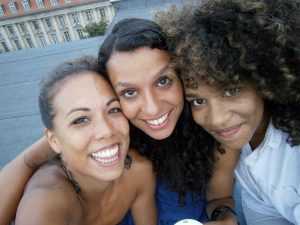
AnaRey Helmy is a journalist and film critic. She was born in East Germany in 1976 with Somali-German roots. She was raised in East Berlin. She was an athlete from a young age and as highschool exchange student became the Virginia State champion in the mile and the 4×400 metes. She studied at the University of Pittsburgh on an athletics scholarship. She went on to get a BA in communications and political studies. She is one of the founding members of the female rap band, Jeneez. She is married with two children and lives in Berlin, Germany.
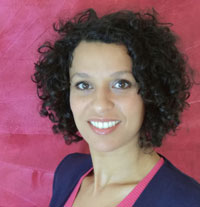
Click for a free download of Jeneez’s EP, DiEsIs

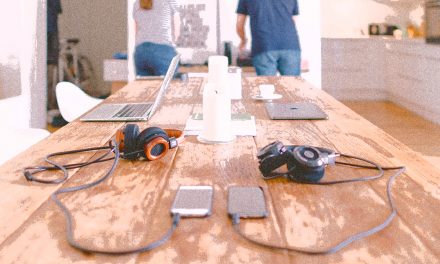
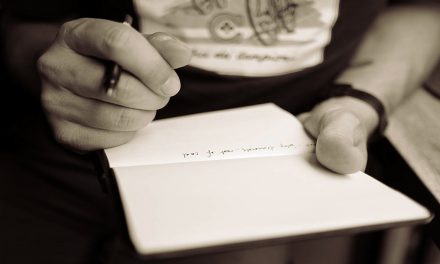

























This was awesome! Anna became a rapper! Who knew?
Hello
I just checked out your website thewildword.com and your site takes longer than 3 seconds to load 🙁
If your site takes so Long Time To Load you are losing more than half your traffic & 50% of visitors won’t return if they have trouble loading a page…
That’s a really expensive mistake to make, specially if you are paying for traffic. I can help you to improve that.
Please contact me by my email for details: wp_optimiser@consultant.com
Regards,
Phillip
Hello, met you at a Pitt football game while you were filming documentary. Want to know how we can see it when it is released!
Bin normalerweise nicht diejenige die Kommentare schreibt aber muss das jetzt mal dalassen:
Bin so dankbar für dieses unglaublich schönes Interview, Ihr wisst gar nicht was für ein krasses Idol Jeneez für mich damals war… ich war 13, komme aus Süddeutschland, und habe euch damals irgendwie in den tiefen des Internets entdeckt, die Songs – auch von Ninjah, haben mich wie Mantras über Jahre begleitet.
Glaube Ihr wart ahead of your time, Big Love <3 _joana_1991
Wow! Ich frag mich warum ich heute, mit 51 Jahren zum ersten Mal Euren super tollen Stuff zu hören bekomme, … so schade. Ihr seht auch noch aus wie die coolsten und habt den heißesten shizzle gerappt. Das Potenzial, krass! Na jedenfalls bin ich jetzt sehr dankbar für die tolle Bereicherung. Much Love aus Stuggi